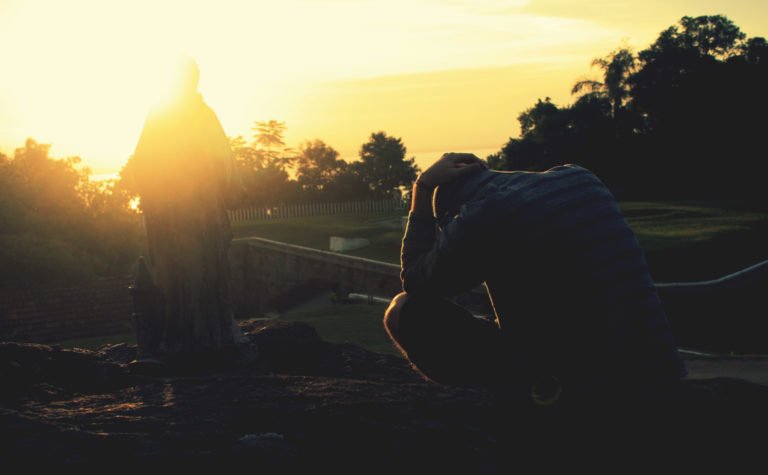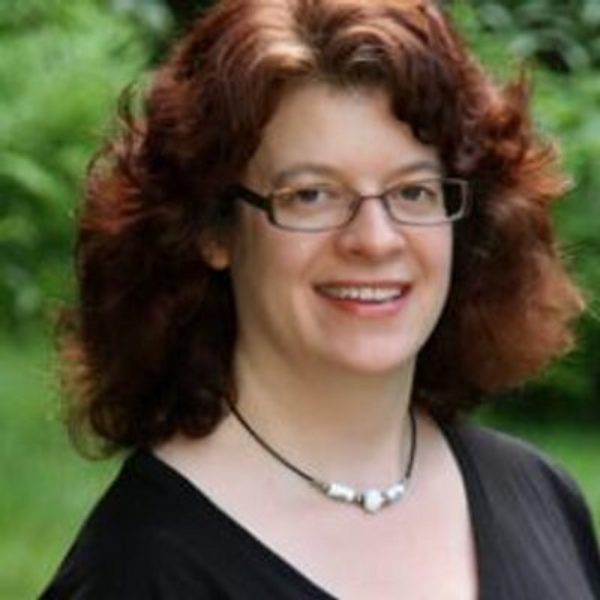
Image by Juliana Muncinelli/Flickr (CC BY-NC 2.0)..
Heading for the Light
My brother John died of an overdose while I was out Christmas shopping one night. In a final, ironic gesture, I was on my way home with a small and hopeful gift for him — Elton John’s memoir, Love Is the Cure — when the police came and told my husband the news. An essay I had been penning about life returning to the earth and the vast order of things became a thin-sounding commentary when placed alongside John’s cremation. How stunningly odd, how ungraspable, how immutable: my brother reduced to ash.
He was here. The boy who grew up alongside me and became a wild, funny, intense, and permeable man. And now he’s simply gone, erased from the picture, unreachable. I won’t hear his voice over the phone or feel his kiss on my cheek, and this hurts more because in recent years I couldn’t find the best aspects of my brother. They were obscured by pain and confusion as he struggled with drugs, mental illness, and an often chaotic existence.
Since John died, words have been coming at me with an urgency I’ve never experienced before. So many of them have something to do with “light,” which was John’s first word. I hear Leonard Cohen singing that “there’s a blaze of light in every word,” or read Marianne Williamson’s words about letting our light shine: “We are all meant to shine, as children do.” Today it’s the Traveling Wilburys and their song “Heading for the Light.” John loved tunes and lyrics by George Harrison, who wrote the song, and I can remember the loud thud of John’s foot as he kept time to the music:
Ooh, I didn’t see that big black cloud hanging over me
And when the rain came down I was nearly drowned
I didn’t know the mess I was inMy shoes are wearing out from walking down this same highway
I don’t see nothing new but I feel a lot of change
And I get the strangest feeling, as I’m
Heading for the light
I still have moments of sadness when I think of John, but I also feel like there’s something I must do with these rays of light that leap, rather insistently, in my direction. I sometimes wonder if he’s been sending them my way.
At the UU Church we attended when my son was an infant, and where he took his first steps, we were greatly impressed with a coming-of-age tradition in which teenagers stood before the congregation, talking openly about their personal beliefs. They had spent a lot of time planning what they wanted to say, and it was touching to see these young men and women cherishing wisdom and justice and peace and kindness, each framing what mattered most through his or her own unique story. We imagined our son someday doing the same.
Maybe I should have joined that Sunday school class, for I’m only coming into a steadier understanding of my own beliefs as I approach 50. In a talk I heard one Sunday on Buddhist tenets, the speaker talked about the autumn leaves, and how they are treasured all the more because of their impermanence. I’ve thought a lot about the concept of impermanence, as well as those truths that seem to be “permanent,” in that they offer something steadfast, no matter what is changing around them. This process has intensified as I contemplate my brother’s early death, his love for life and light, and the dark periods that overshadowed several long stretches of his years.
My sister posted a collection of John’s old photographs shortly after he died. It was a wonderful way to remember the essence of who he was, even though the photographs had been taken decades earlier. Through his eyes I saw the softness, the gentleness with which he viewed me. The same softness and gentleness came through in the way he captured a horse in the meadow, the back of a woman on a balcony, the curves of a staircase, the curios in an old house, peeling paint on an old barn, and the leafy branches of a tree in full sunlight.
The photographs capture something that is hard to articulate, but here’s my best shot, my own, late-bloomer version of the UU teenager’s statement to the congregation. There is an ever-accessible, unfaltering light, an illumination that shows us every kind of detail about every kind of life. The breathtaking variety and possibility that we have a chance to witness, not just with our eyes but with every sense, is meant to be “seen” with that illumination. When we notice genuine truth and beauty in the world, appreciate it, act on what’s been illuminated, attempt to share it, clear the way for it — that’s when we are our best selves. When we lose track of the light, we must find it again if we are to live fully.
When I think of my brother, I think he lost track of the light for long periods of time. But sometimes I saw it shining through. Maybe some of us only rediscover the light after we’ve moved on to whatever happens next. For those of us still living, maybe we are here to help recover lost light. The Jewish concept of tikkun olam is based on the story that God’s light was so vast and powerful that the special vessels meant to contain it shattered, and there are still shards holding this light that must be recovered today.
The light, like our sun, seems to change according to perspective, and we may perceive it as elusive, omniscient, magnanimous, playful, sobering, changing shape, standing still, moving away, or simply gone. Regardless of our labels, regardless of the circumstances of our birth, life, or death, the light is there all along, so very stunning and ungraspable. Like us. Reaching for what’s illuminated, regardless of whether it is transient or ever present — reaching is what makes us real.


Share your reflection